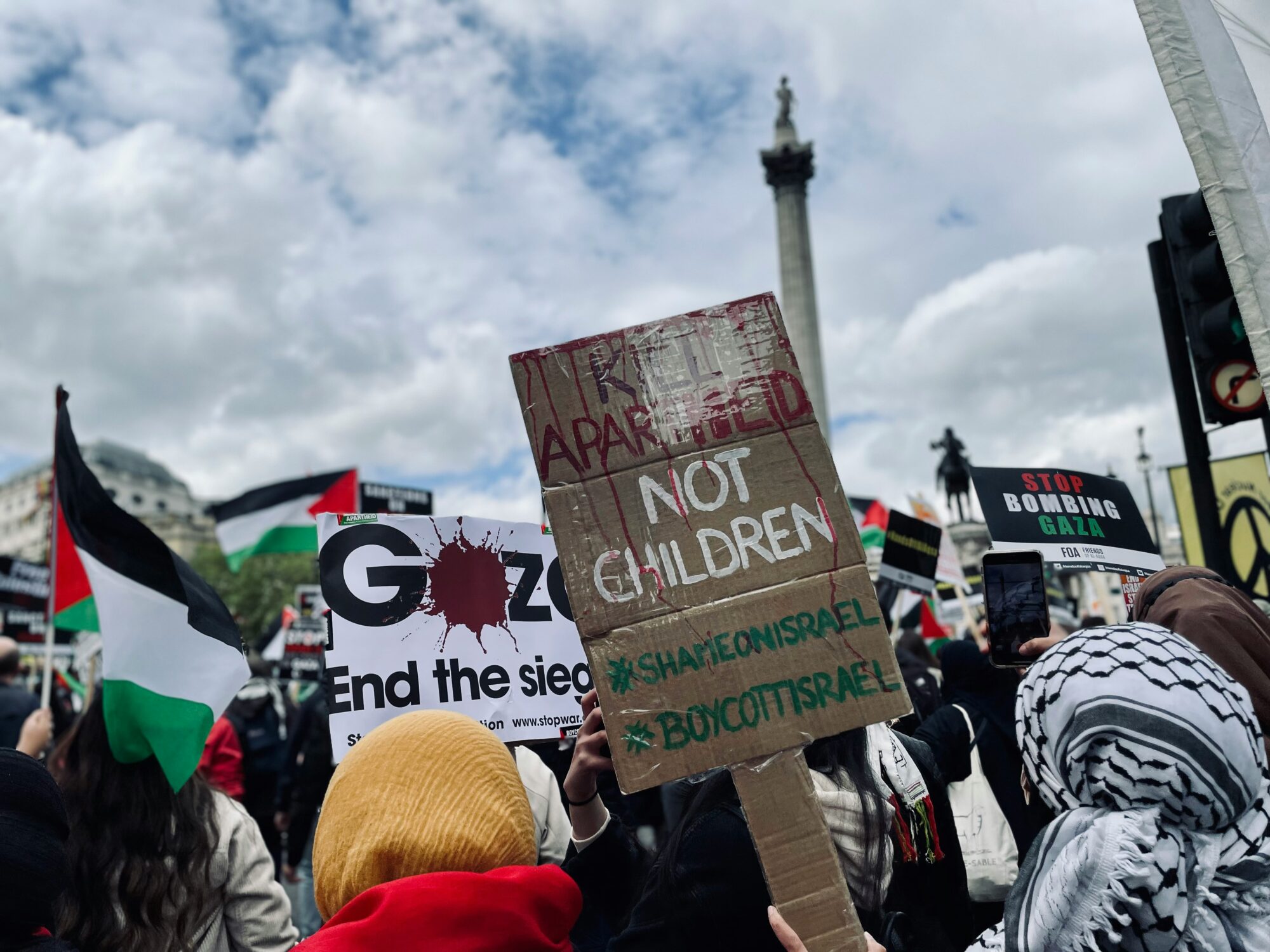 On March 9th, Mahmoud Khalil was detained in his apartment in New York. President Trump claimed at the beginning of his term that he would ensure the investigation and detainment of international students who spoke out against the genocide in Gaza. It wasn’t long before Immigration and Customs Enforcement (ICE) Agents began their search and detentions. Columbia University, where Khalil was active in protest, has spent months in the national spotlight for student activism— it is no surprise this is where Trump’s effort began.
On March 9th, Mahmoud Khalil was detained in his apartment in New York. President Trump claimed at the beginning of his term that he would ensure the investigation and detainment of international students who spoke out against the genocide in Gaza. It wasn’t long before Immigration and Customs Enforcement (ICE) Agents began their search and detentions. Columbia University, where Khalil was active in protest, has spent months in the national spotlight for student activism— it is no surprise this is where Trump’s effort began.
Despite Khalil being a Green Card holder and having the support of his attorney throughout this process, the Trump administration has been adamant that his alleged support for Hamas —which the administration has labeled a terrorist group— is a threat to national security. The logic used by the Trump administration of national security is how they have defended their actions in the courts and how they are justifying seeking to remove student visa status from these students they deem dangerous.
So, if Trump’s actions are based on threatening behavior, how is this harmful to democracy? The investigations and detentions are only one part of the puzzle to dismantle dissent and higher education. Many protests on campuses were peaceful, calling for universities to divest funds from Israeli companies and supporters. Additionally, most protests had no direct reference to Hamas and called for Palestinian freedom. By framing dissent as threatening, the president justifies silencing any opposition with threats of persecution and removal.
Khalil may have been the first student to fall victim to Trump’s attack, but he was not the last. At least a dozen students have been targeted based on social media posts, campus presence, and individual reports. While most of this flew under the radar, the capture of Rumeysa Ozturk, a Tufts graduate student, resurfaced the nature of these detentions. Ozturk was captured from the street by six ICE agents in plain clothes, an interaction that just happened to be caught by security cameras. The reality of the aggression and surprise with which she was detained stoked fear in many other international students.
As the number of detentions only grows, the Trump administration has no intention of slowing down. International students prove to be an easy target, given that visa revocation and national security concerns are more likely to hold up for those who are not American citizens. However, the decline of freedom always starts somewhere. Khalil was detained as a Legal Permanent Resident, indicating that the administration has little concern for the actual status of arrested protesters. Ultimately, these detentions should be a warning.
With free speech being a key factor in American democracy, any threat is dangerous. In particular, threats that oppose the current administration. By targetting protesters, Trump solidifies his stance as having little regard for free speech and instead a high priority of expelling dissent. Right now, his concern is “terrorist support” on college campuses by international students. Tomorrow, it could be protesters for any cause.
In Stealth Authoritarianism, Varol reminds readers that authoritarianism often begins with censorship and restrictions on free speech. Libel threats, lawsuits, accusations of criminal activity, surveillance, and increased institutional investigations are methods of censorship we often find in undemocratic regimes. President Trump has not shied away from implementing these tactics to silence his opponents, likely to instill fear into others, but also to toe the line of executive authority.
The president continues to rely on the courts to support his actions, but nothing has been guaranteed. The Alien and Sedition Acts of 1798 and following Supreme Court rulings on free speech regarding immediate safety have been used to hinder free speech and are now back up for consideration. It is up to the courts to ensure that the president does not overreach his authority to limit free speech and protest, but it is also up to students —international and citizens alike— to continue to fight back amidst fear.

Hi! Your article is both powerful and deeply unsettling. It highlights how national security rhetoric is being weaponized to suppress peaceful dissent, particularly among vulnerable groups like international students. Detaining people like Mahmoud Khalil and Rumeysa Ozturk, under vague accusations and often without due process, shows a disturbing shift toward authoritarian control. What makes this particularly dangerous, as you rightly point out, is how these actions are normalized through legal channels, exactly what Varol describes as stealth authoritarianism. This is not just about one group or one issue, rather it is about creating a climate of fear where protesting becomes dangerous for everyone.
The erosion of free speech, especially on college campuses, is a direct threat to democracy. This is a wake up call we cannot afford to ignore.